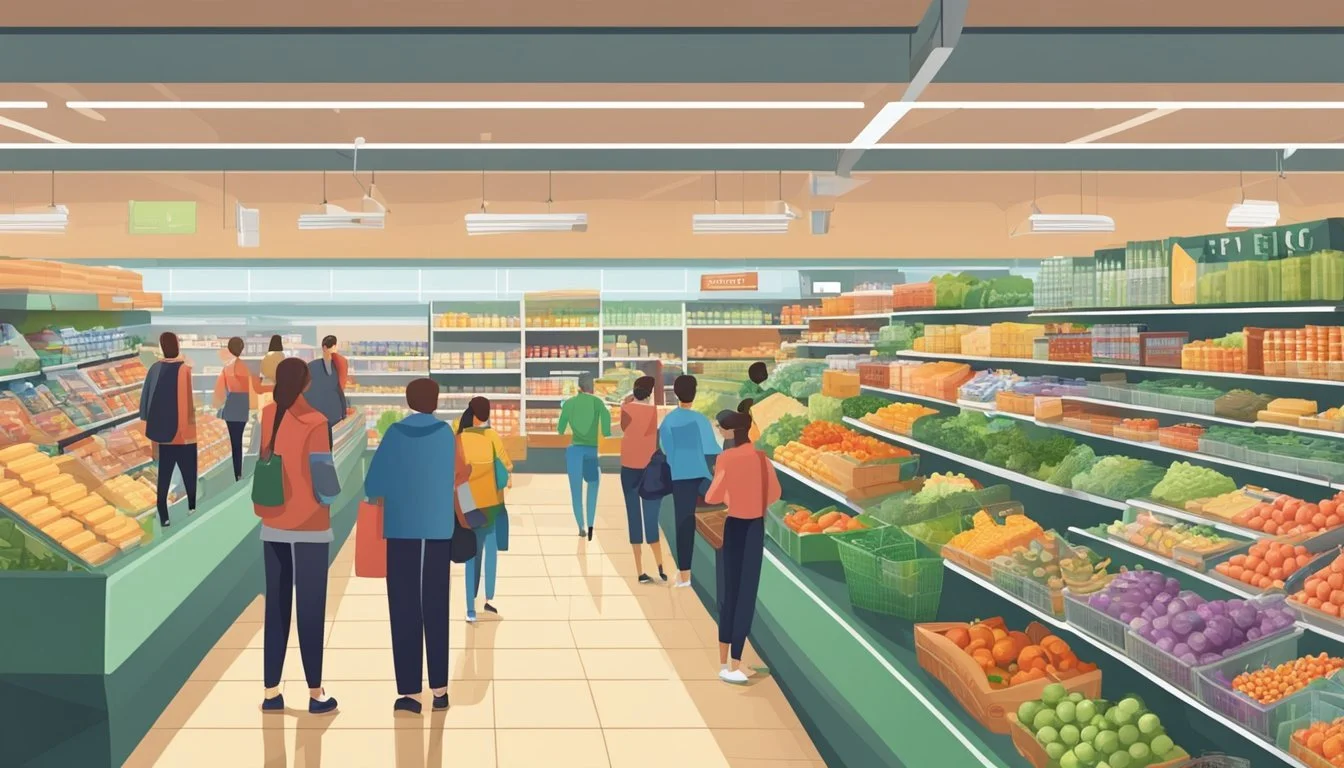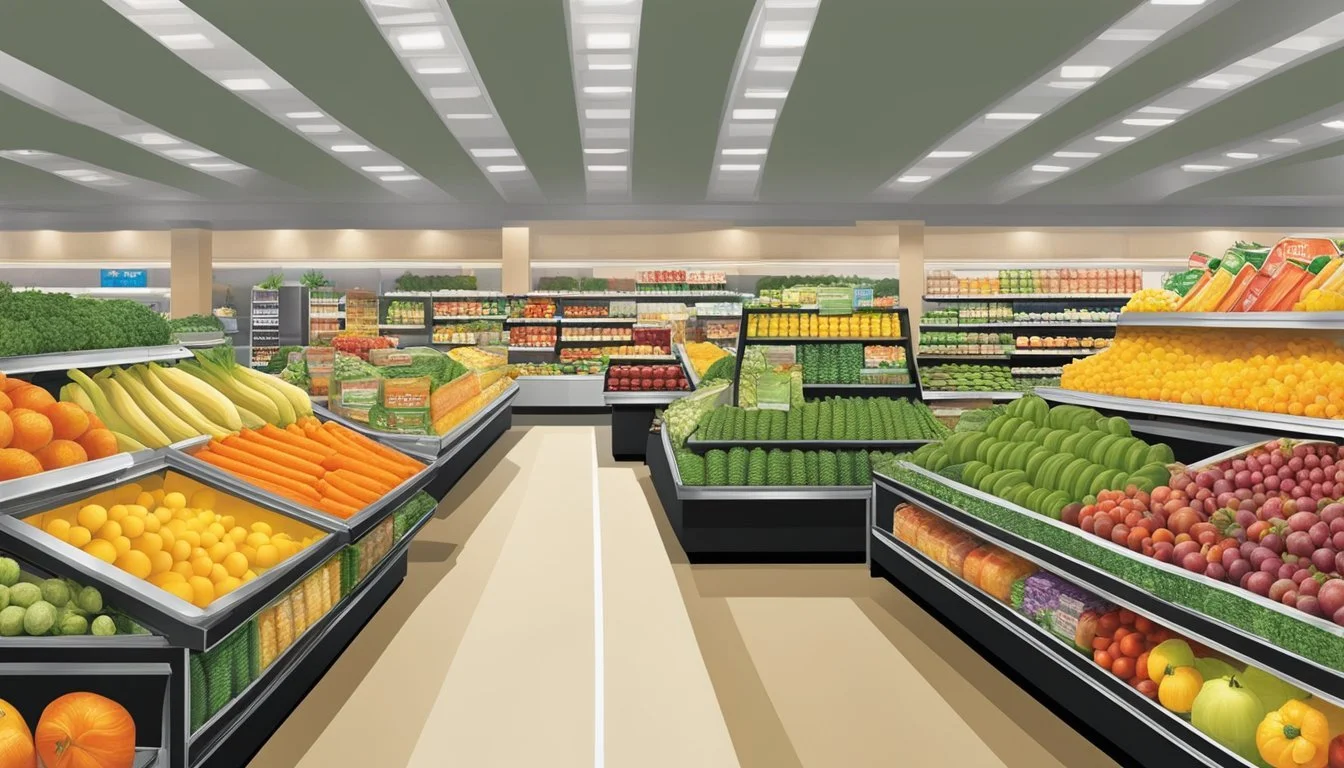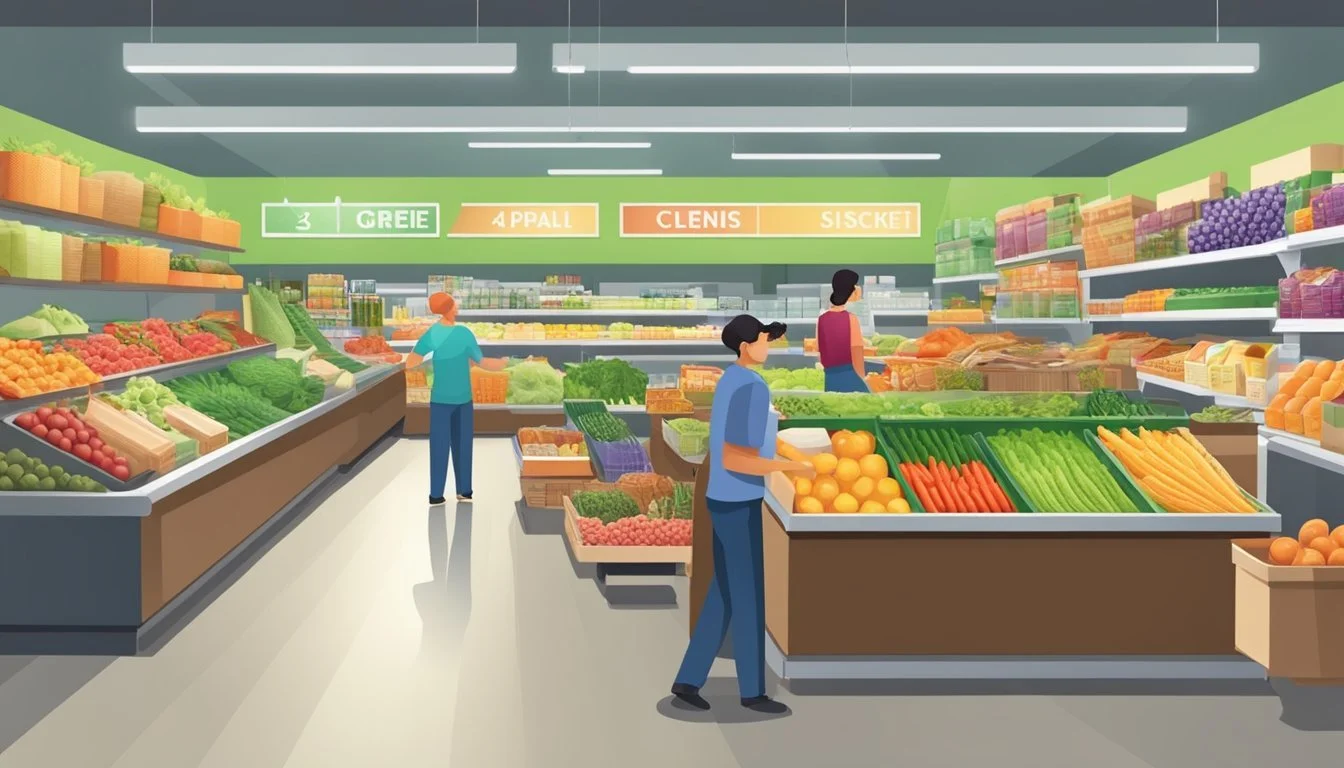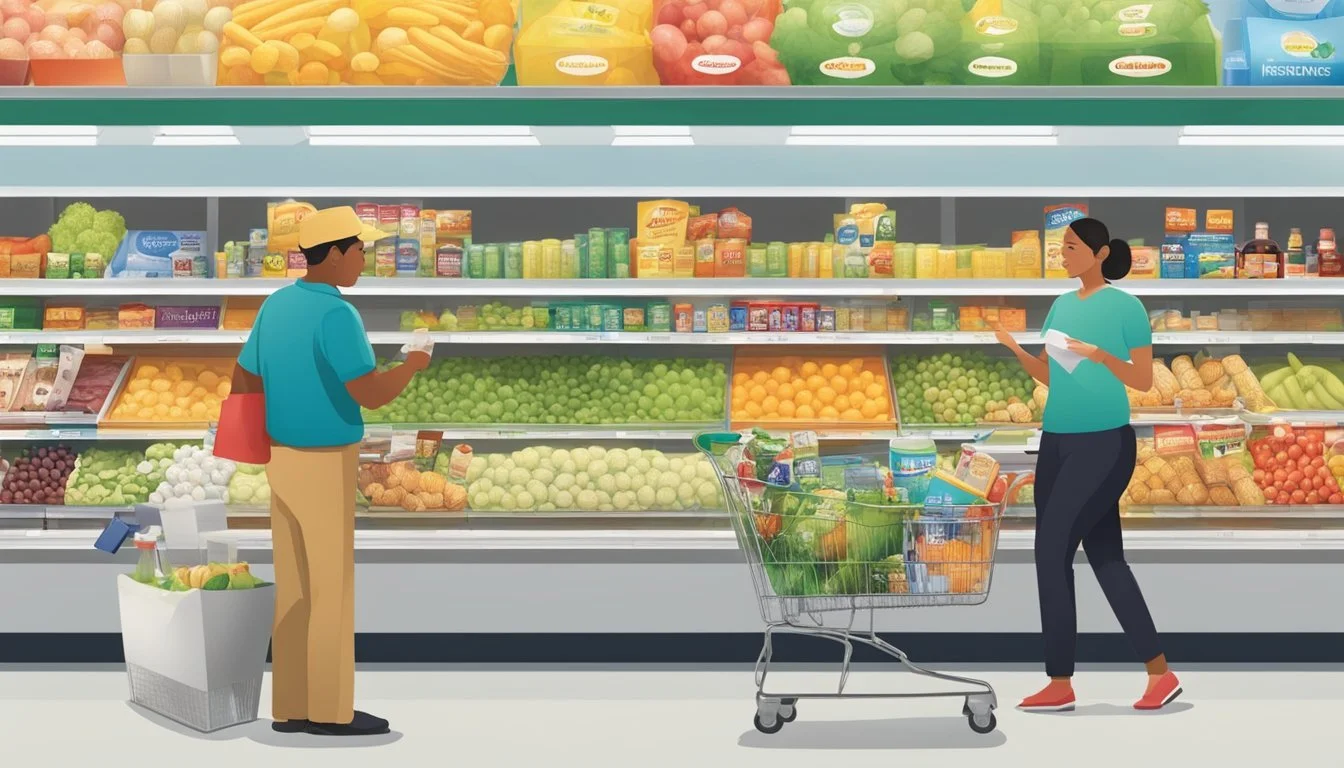Ingles Markets vs Lucky Supermarkets
A Comprehensive Comparison of Prices, Selection, and Service
Ingles Markets and Lucky Supermarkets offer distinct shopping experiences for grocery buyers. Both chains have established reputations in their respective regions, with Ingles serving the southeastern United States and Lucky operating primarily in California.
When comparing overall quality and selection, Ingles Markets generally provides a more extensive range of products and services than Lucky Supermarkets. Ingles is known for its larger store formats, in-house bakeries, and emphasis on fresh produce. Lucky, on the other hand, focuses on competitive pricing and neighborhood convenience.
Customer preferences often depend on individual needs and location. Ingles Markets may appeal to shoppers seeking a one-stop destination with diverse offerings, while Lucky Supermarkets caters to those prioritizing affordability and quick trips. Both chains strive to meet the evolving demands of modern grocery shoppers in their respective markets.
Company Overviews
Ingles Markets and Lucky Supermarkets are two prominent grocery chains with distinct histories and regional presences. Both have established themselves as key players in their respective markets through decades of growth and expansion.
History and Expansion of Ingles Markets
Ingles Markets was founded in 1963 by Robert Ingle in Asheville, North Carolina. The company began as a single store and has since grown to operate 198 supermarkets across six southeastern states. Ingles focuses on serving communities in the Appalachian region.
The chain is known for its large-format stores, often featuring pharmacies and fuel centers. Ingles Markets has maintained its headquarters in Black Mountain, North Carolina, and is publicly traded on the NASDAQ under the ticker symbol IMKTA.
Ingles has expanded its reach through strategic store openings and acquisitions. The company operates under several banners, including:
Ingles
SAV-MOR Foods
Brand Presence of Lucky Supermarkets
Lucky Supermarkets has a complex history of ownership changes. Founded in 1935 in San Leandro, California, Lucky quickly became a popular grocery chain in the western United States.
In 1998, Lucky's parent company, American Stores, was acquired by Albertsons. The Lucky brand temporarily disappeared in 1999 but was later revived. Currently, Lucky Supermarkets operates under different ownership in different regions:
Albertsons operates Lucky stores in Utah
Save Mart Supermarkets runs Lucky locations in Northern California
Lucky Supermarkets are typically found in urban and suburban areas. The chain has faced challenges in maintaining brand consistency due to its fragmented ownership structure.
Product Range and Quality
Ingles Markets and Lucky Supermarkets offer diverse product selections to meet customer needs. Both chains prioritize quality across departments but have some key differences in their offerings.
Produce and Meat Offerings
Ingles Markets prides itself on locally sourced produce, partnering with regional farmers to stock fresh fruits and vegetables. Their meat department features USDA Choice and Prime beef cuts, along with a selection of organic and grass-fed options.
Lucky Supermarkets emphasizes affordability in their produce section while maintaining quality standards. Their meat department offers a range of options, including value packs for budget-conscious shoppers.
Both chains provide fresh seafood selections, with Ingles typically offering a wider variety of fish and shellfish options.
Prepared Foods and Bakery
Ingles Markets boasts an extensive prepared foods section, featuring hot and cold options made in-store daily. Their bakery produces artisanal breads, custom cakes, and a variety of pastries.
Lucky Supermarkets offers a more modest prepared foods selection, focusing on grab-and-go meals and rotisserie chickens. Their bakery provides fresh-baked goods, with an emphasis on traditional favorites and seasonal items.
Private Label and Exclusive Products
Ingles Markets' Laura Lynn private label spans numerous categories, offering quality alternatives at competitive prices. The chain also carries exclusive regional products, supporting local producers.
Lucky Supermarkets' store brand, Essential Everyday, covers staple items across departments. They complement this with a selection of specialty and gourmet products to cater to diverse tastes.
Both chains prioritize value in their private label offerings, but Ingles tends to have a broader range of exclusive and premium products.
Pricing and Value
Ingles Markets and Lucky Supermarkets employ different pricing strategies and value offerings. Both chains aim to provide competitive prices, but their approaches to discounts, loyalty programs, and overall value proposition vary.
Everyday Prices and Discounts
Ingles Markets focuses on everyday low prices across many product categories. They regularly offer weekly specials and digital coupons to help customers save. Lucky Supermarkets, on the other hand, tends to have slightly higher everyday prices but compensates with frequent sales and promotions.
Ingles often beats Lucky on staple items like milk, bread, and eggs. Lucky counters with deeper discounts on specialty and organic products. Both stores run regular promotions on seasonal items and holiday-related goods.
Loyalty Programs and Savings Options
Ingles Advantage Card provides personalized savings and fuel points. Cardholders enjoy exclusive discounts and earn rewards on qualifying purchases. Lucky's rewards program offers digital coupons and personalized deals based on shopping history.
Lucky's program includes a mobile app for easy coupon clipping and reward tracking. Ingles' fuel rewards can lead to significant savings at participating gas stations. Both programs are free to join and offer additional savings opportunities beyond everyday prices.
Comparing Costs with Competitors
When compared to major chains like Walmart and Kroger, Ingles and Lucky fall in the mid-range for pricing. Ingles often beats Publix and Safeway on price, while Lucky tends to be more competitive with Safeway in regions where they overlap.
Aldi and Walmart typically offer lower prices than both Ingles and Lucky on many items. However, Ingles and Lucky often provide better quality produce and a wider selection of national brands. For bulk purchases, warehouse clubs like Costco and Sam's Club usually offer better value than either Ingles or Lucky.
Target's grocery prices are generally higher than both Ingles and Lucky, but Target often wins on non-food items. Prime members shopping at Whole Foods might find comparable prices to Lucky on organic products, but Ingles typically remains more affordable overall.
Customer Experience
Customer experience is a crucial factor in determining the success of grocery stores. Both Ingles Markets and Lucky Supermarkets strive to provide quality service and convenience to their shoppers.
Service and Checkout Efficiency
Ingles Markets emphasizes friendly customer service. Their staff is trained to assist shoppers and answer questions promptly. Checkout lines at Ingles tend to move efficiently, with multiple registers open during peak hours.
Lucky Supermarkets also prioritizes customer satisfaction. They offer self-checkout options in many locations, reducing wait times. Both chains implement loyalty programs to enhance the shopping experience and provide discounts.
Ingles Markets has an average rating of 3.3 out of 5 based on customer reviews, indicating generally satisfied customers. Lucky Supermarkets' ratings vary by location but are typically in a similar range.
Store Cleanliness and Organization
Ingles Markets maintains clean and well-organized stores. Aisles are clearly labeled, making it easy for customers to find products. The produce section is typically well-stocked with fresh items.
Lucky Supermarkets also prioritizes cleanliness and organization. Their stores feature wide aisles and logical product placement. Both chains regularly update their store layouts to improve shopping efficiency.
Customers appreciate the efforts of both retailers to maintain a pleasant shopping environment. This attention to detail contributes to overall satisfaction and repeat business.
Online Shopping and Curbside Pickup
Ingles Markets offers online shopping and curbside pickup services at select locations. Customers can browse products, place orders, and schedule pickup times through the Ingles website or mobile app.
Lucky Supermarkets provides similar conveniences with their e-commerce platform. They offer home delivery in addition to curbside pickup options. Both chains have invested in user-friendly interfaces to streamline the online shopping process.
These digital services cater to customers seeking convenience and time-saving options. The availability of online shopping has become increasingly important in the competitive grocery market.
Sustainability and Community Impact
Ingles Markets and Lucky Supermarkets have implemented various initiatives to enhance their environmental responsibility and community engagement. Both chains recognize the importance of sustainable practices and local involvement in their operations.
Environmental Initiatives
Ingles Markets has made strides in reducing its environmental footprint. The company has installed energy-efficient lighting and refrigeration systems in many of its stores. They have also implemented recycling programs for plastic bags and cardboard.
Lucky Supermarkets, owned by The Save Mart Companies, has focused on reducing food waste. They partner with local food banks to donate unsold but still edible products. The chain has also introduced reusable bag programs to minimize plastic usage.
Both supermarkets have invested in more efficient transportation fleets to reduce fuel consumption and emissions during product delivery.
Support for Local Producers
Ingles Markets prioritizes partnerships with local farmers and producers. They feature a "Taste of Local" program, highlighting regional products throughout their stores. This initiative supports the local economy and reduces transportation distances for fresh produce.
Lucky Supermarkets also emphasizes local sourcing. They work with California growers to provide customers with fresh, seasonal produce. The chain's "Local Grower" signs help shoppers identify and support nearby farms.
Both grocery stores organize regular meet-the-farmer events, allowing customers to connect directly with local producers.
Community Involvement
Ingles Markets actively participates in community events and sponsors local sports teams. They operate the Ingles Tools for Schools program, which provides supplies to area schools. The company also supports food drives and fundraisers for local charities.
Lucky Supermarkets focuses on fighting hunger in their communities. They run an annual campaign called "Stamp Out Hunger" in partnership with local food banks. The chain also supports youth education through scholarship programs and school fundraising initiatives.
Both supermarkets encourage employee volunteerism, allowing staff to engage in community service projects during work hours.
Overall Reputation and Customer Perceptions
Ingles Markets and Lucky Supermarkets have distinct reputations among consumers. Their standing is shaped by various factors including industry recognition, consumer research, and online feedback.
Industry Awards and Recognitions
Ingles Markets has received accolades for its community involvement and customer service. The company earned recognition from the National Grocers Association for its innovative programs supporting local farmers. Lucky Supermarkets, part of the Save Mart family, garnered praise for its sustainability initiatives.
In 2023, Ingles was honored with a regional "Grocer of the Year" award. Lucky Supermarkets received commendation for its food safety practices from industry watchdogs.
Consumer Reports and Market Surveys
Consumer Reports ranked Ingles Markets above average for its produce quality and store cleanliness. Lucky Supermarkets scored well in price competitiveness and checkout speed.
A 2024 market survey showed Ingles customers appreciated the chain's loyalty program. Lucky Supermarkets rated highly for its diverse product selection.
Researchers found Ingles performed strongly in rural markets. Lucky Supermarkets excelled in urban areas with its compact store formats.
Social Media and Online Reviews
On Yelp, Ingles Markets averages 3.8 stars across its locations. Customers frequently praise the friendly staff and well-stocked shelves. Lucky Supermarkets maintains a 3.6-star average, with positive comments about competitive prices.
Reddit users often discuss Ingles' community-focused approach. Lucky Supermarkets receives kudos for its digital coupons and app functionality.
Both chains actively respond to customer feedback on social platforms. Ingles addresses concerns promptly, while Lucky Supermarkets highlights its customer service initiatives.








